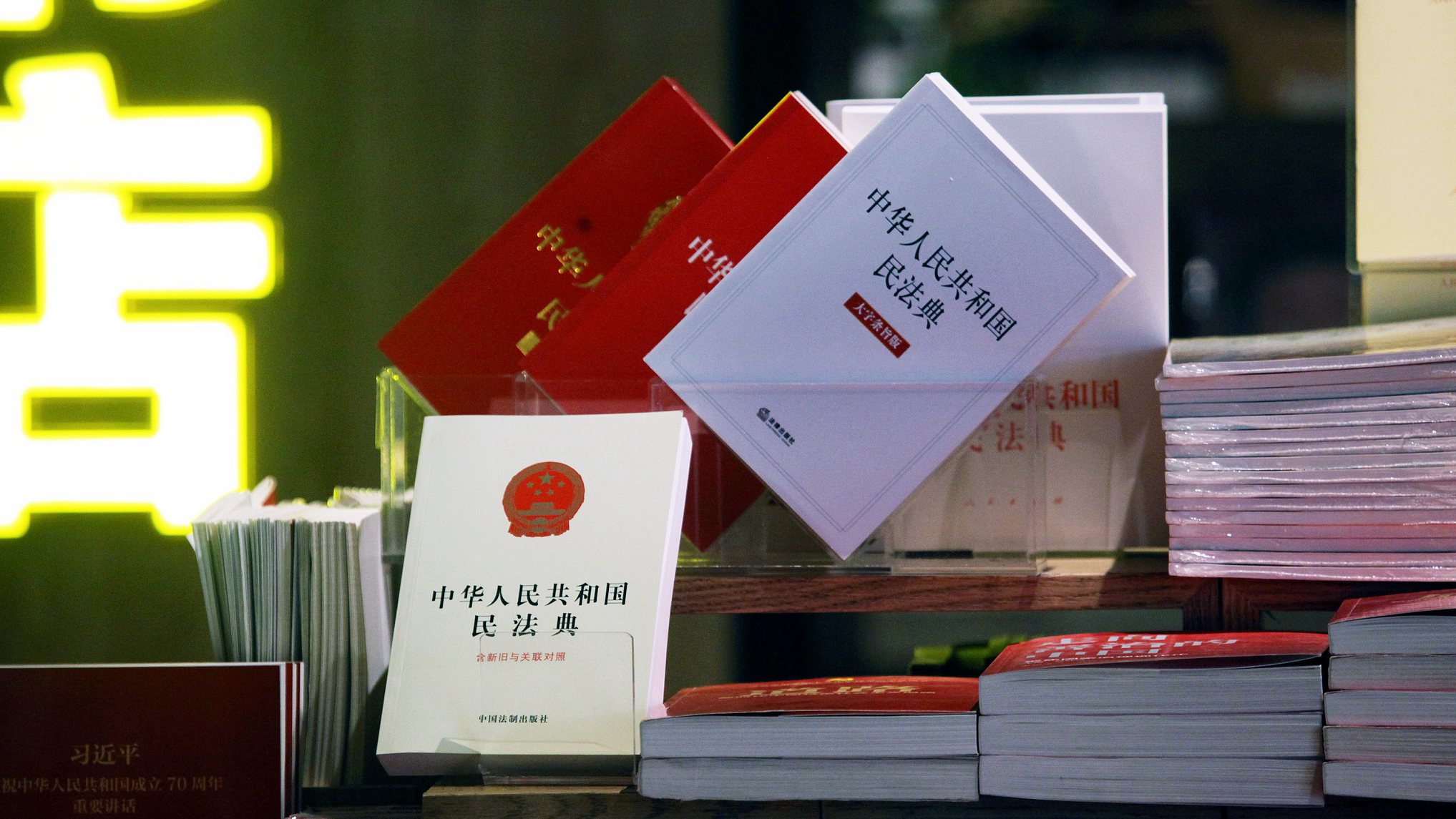China's Supreme People's Court (SPC), the country's highest judicial organ, released the first batch of judicial interpretations of the Civil Code on Wednesday, two days before the law takes effect on January 1.
At a press conference held by the SPC, He Rong, vice president of the court, said that the SPC has sorted out a total of 591 existing judicial interpretations and relative regulated documents accumulated since the establishment of the People's Republic of China (PRC) in 1949.
A total of 364 pieces that are in accordance with the Civil Code have been upheld, and 111 pieces require amendments of names and articles, and will go into effect after being enacted on January 1. Another 116 pieces will be abolished after the Civil Code is put into effect.

The books of the published Civil Code on a shelf at a bookstore in Shenyang City, northeast China's Liaoning Province, June 16, 2020. /CFP
The books of the published Civil Code on a shelf at a bookstore in Shenyang City, northeast China's Liaoning Province, June 16, 2020. /CFP
According to He Rong, the sorting was based on the Civil Code as well as judicial practices. All those that go against the code will be abolished to unify the standards.
The SPC vice president also mentioned that a total of 139 guiding cases published since 2011 have been sorted out as well, and two of them were removed from the guidance.
As China's first law with "code" in its name, the Civil Code is a milestone, said He Rong, adding that it has been the SPC's starting point and foothold that all the work was done in order to provide legal protection for the civil rights of the people.

A customer reads the Civil Code at a bookstore in Shenyang City, northeast China's Liaoning Province, June 16, 2020. /CFP
A customer reads the Civil Code at a bookstore in Shenyang City, northeast China's Liaoning Province, June 16, 2020. /CFP
The Civil Code was adopted at the third session of the 13th National People's Congress. It is a wide-ranging legislative package that provides legal protection of private rights including property, contracts, personality, inheritance, marriage and family.
The personality rights, with detailed descriptions of the rights of reputation, name, image and privacy, have become an independent part of the Civil Code. Meanwhile, the rights of voice, name and property in the virtual world are mentioned for the first time, and are expected to further protect online personality rights in today's society.

